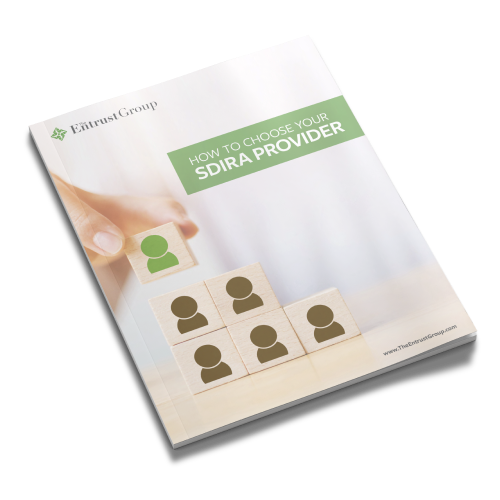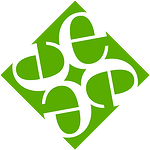How Do I Choose a Self-Directed IRA Custodian?

Estimated reading time: 6 minutes
In the hands of the right investor, a self-directed IRA (SDIRA) can be an incredibly powerful tool.
Unlike most IRAs, where investment options are typically limited to stocks, bonds, and mutual funds, SDIRAs provide individuals with the flexibility to invest in a broader range of assets, including real estate, precious metals, private equity, and more.
However, you can’t set up one of these investment accounts at your local bank or brokerage; you need an SDIRA custodian and administrator. These entities play a crucial role in overseeing the assets and facilitating your self-directed transactions within your SDIRA.
In this blog post, we’ll uncover the reasons you need an SDIRA provider and six of the top qualities to look for as you’re evaluating your choices.
Table of Contents
- Why Do I Need a Self-Directed IRA Custodian?
- Self-Directed IRA Custodian vs Self-Directed IRA Administrator
- What Exactly Does an SDIRA Provider Do?
- Qualities to Look For in an SDIRA Provider
- Conduct Due Diligence on Your SDIRA Provider
Why Do I Need a Self-Directed IRA Custodian?
Many account holders may wish to invest their tax-advantaged funds into alternative assets without an SDIRA custodian. However, this is not allowed by the Internal Revenue Code (IRC).
Section 408(a) of the IRC mandates that IRAs be established and maintained by a trustee or custodian for proper administration and compliance. Further, Section 408(h) outlines that an approved custodian or similar entity is responsible for administering the IRA and executing transactions.
While all IRAs require a custodian, not all providers are designed to handle the complexities of investing in alternative assets. Only SDIRA providers have the infrastructure and expertise to handle such transactions, allowing you to invest your tax-preferred funds in alternatives like real estate or precious metals.
Self-Directed IRA Custodian vs Self-Directed IRA Administrator
While the terms may seem interchangeable, there is a difference between an SDIRA custodian and an SDIRA administrator.
Custodians are primarily responsible for holding and safeguarding the assets within the SDIRA. They operate under regulations from the IRS and other federal and state authorities. These entities ensure legal custody of the assets, preserving the tax-advantaged status of the investments within the SDIRA. Banks, credit unions, non-depository banks, and brokerage houses can serve as custodians, although not all may be equipped for self-directed IRAs.
Our custodian is The Entrust Trust Company (TETC), a non-depository trust company and Entrust affiliate. TETC is authorized and overseen by the Tennessee Department of Financial Institutions and specializes in providing custodial services for self-directed IRAs.
Administrators, on the other hand, focus on administrative tasks related to the SDIRA. This includes handling paperwork, submitting reports to the IRS, and acting as recordkeepers. Administrators, like The Entrust Group (TEG), must work with an SDIRA custodian. In our case, TEG acts as the administrator while TETC acts as the SDIRA custodian.
At Entrust, TETC has delegated certain custodial duties to TEG. These may include:
- Overseeing undirected IRA cash in FDIC-insured accounts.
- Setting up client accounts compliant with the Bank Secrecy Act (BSA), Office of Foreign Assets Control (OFAC), Internal Revenue Code (IRC), and Tennessee regulations, with thorough customer screening and identity checks.
- Offering administrative, accounting, and recordkeeping services,
- Creating and enforcing custodial agreements and documentation to keep client accounts compliant.
- Communicating with clients regarding their IRA investments, contributions, distributions, and maintenance needs.
With the combined services of TEG and TETC, Entrust can be considered a fully-fledged SDIRA provider. For the sake of clarity, we’ll use the term “SDIRA provider” moving forward. While not perfect, this term best captures the combined custodial and administrative services that you’ll experience when working with an SDIRA company like Entrust.
What Exactly Does an SDIRA Provider Do?
Given the requirements outlined above, what exactly does an SDIRA provider do?
Provides Custodial Services
As you might expect, one of the primary roles of an SDIRA provider lies in providing custodial services.
This involves executing buy and sell orders and coordinating investment purchases. However, a reliable SDIRA provider does not do anything without the account holder’s explicit direction. That’s why it’s called “self-directed.”
Note: Self-directed plans often involve unique transactions, such as investments in real estate and private company stock. Processing these transactions requires more time, expertise, and manual processing than processing publicly traded securities at a bank or brokerage. Consequently, SDIRA provider fees are often higher due to the increased labor and expertise involved.
Finally, reliable providers maintain accurate records of all transactions and holdings within the SDIRA. This includes detailing account activity and valuations, providing regular statements to account holders, and reporting necessary tax documents to the IRS such as Form 1099-R and Form 5498.
Updates Account Holders on Regulatory Changes
SDIRA providers stay abreast of regulatory changes to keep their account holders and processes up-to-date. This proactive approach helps account holders navigate an evolving regulatory landscape.
Educational Support
Reputable providers often support their clients with educational resources and guidance on IRS rules and regulations related to SDIRAs. This helps account holders make informed investment decisions and avoid unintentional violations of IRS guidelines.
Further, SDIRA providers often interact directly with account holders. Only an experienced, expert staff can address a wide range of questions, provide resources, and offer support in navigating the complexities of self-directed investing.
Qualities to Look For in an SDIRA Provider
Selecting the right SDIRA provider is crucial. A reputable provider ensures that your assets are secure and records are well-kept and comply with IRS regulations.
Here are some top qualities to seek out if you’re searching for a provider:
Experience and Reputation
Choose a provider with a solid track record and a good reputation in the industry. Look for client testimonials and reviews from trusted sources like the Better Business Bureau to gauge the experiences of other investors.
Investment Options
Evaluate the range of investment options permitted by the provider. If you’re interested in the benefits of portfolio diversification, consider a provider that facilitates a diverse selection of investment opportunities. Think real estate, precious metals, private equity, and cryptocurrencies.
Note: If you are primarily interested in investing in real estate with your IRA funds, you may be privy to a “real estate IRA” provider. In fact, all real estate IRAs are simply self-directed IRAs with a different label. Most reliable SDIRA providers have extensive expertise in real estate administration, even if they don't offer a “real estate IRA.”
Reasonable Fees and Costs
As you seek out SDIRA providers, you’ll quickly note that SDIRAs generally incur higher fees than other IRAs. That’s because alternative asset administration is much more resource-intensive than administering trades in stocks and bonds.
You should carefully examine and compare the fee structures of different providers. This ensures that the fees align with your specific financial objectives and preferences.
If you plan to manage various alternative assets, many IRA holders opt for an IRA LLC structure. This allows them to streamline their holdings, gain checkbook control, and minimize administrative and transaction fees.
Modern Technology and Account Access
One of the most significant quality-of-life improvements you’ll find is an SDIRA provider with a modern client portal.
A user-friendly and efficient online portal can make managing your SDIRA more convenient. This ensures that you have easy, 24/7 access to your account information and can pounce on opportune moments whenever they arise.
At Entrust, we believe that an intuitive, snappy client portal is vital for investor success. That may be why Investopedia considers the Entrust Client Portal the “Best Online Portal” in the industry.
Stellar Customer Service
Prompt and knowledgeable customer support can be crucial, especially when dealing with complex transactions or regulatory matters. Evaluate the quality of customer service provided by the provider through client testimonials and third-party review sites.
Comprehensive Educational Resources
Even experienced investors have blind spots in their education.
A good provider should offer in-depth educational resources to help investors understand the rules and regulations surrounding SDIRAs. Look for webinars, articles, and guides that can assist you in making informed investment decisions.
Conduct Due Diligence on Your SDIRA Provider
Beyond your next investment, the choice of an SDIRA provider is one of the most pivotal decisions you can make as a self-directed investor.
The right provider can be the linchpin for success, providing expertise, guidance, and a secure framework for your retirement portfolio. It's crucial to conduct thorough research and choose a provider that aligns with your investment goals and values.
If you're interested in understanding how to select a trustworthy SDIRA provider, download our SDIRA Provider Kit. Inside, you'll find a breakdown of the differences between an SDIRA custodian and an SDIRA administrator. Plus, we've included crucial tips for evaluating an SDIRA provider, including key questions to ask.

Not sure which SDIRA provider to go with?
Or, if you’re ready to find out more about whether Entrust is right for you, talk to one of our SDIRA experts.




























0 Comment